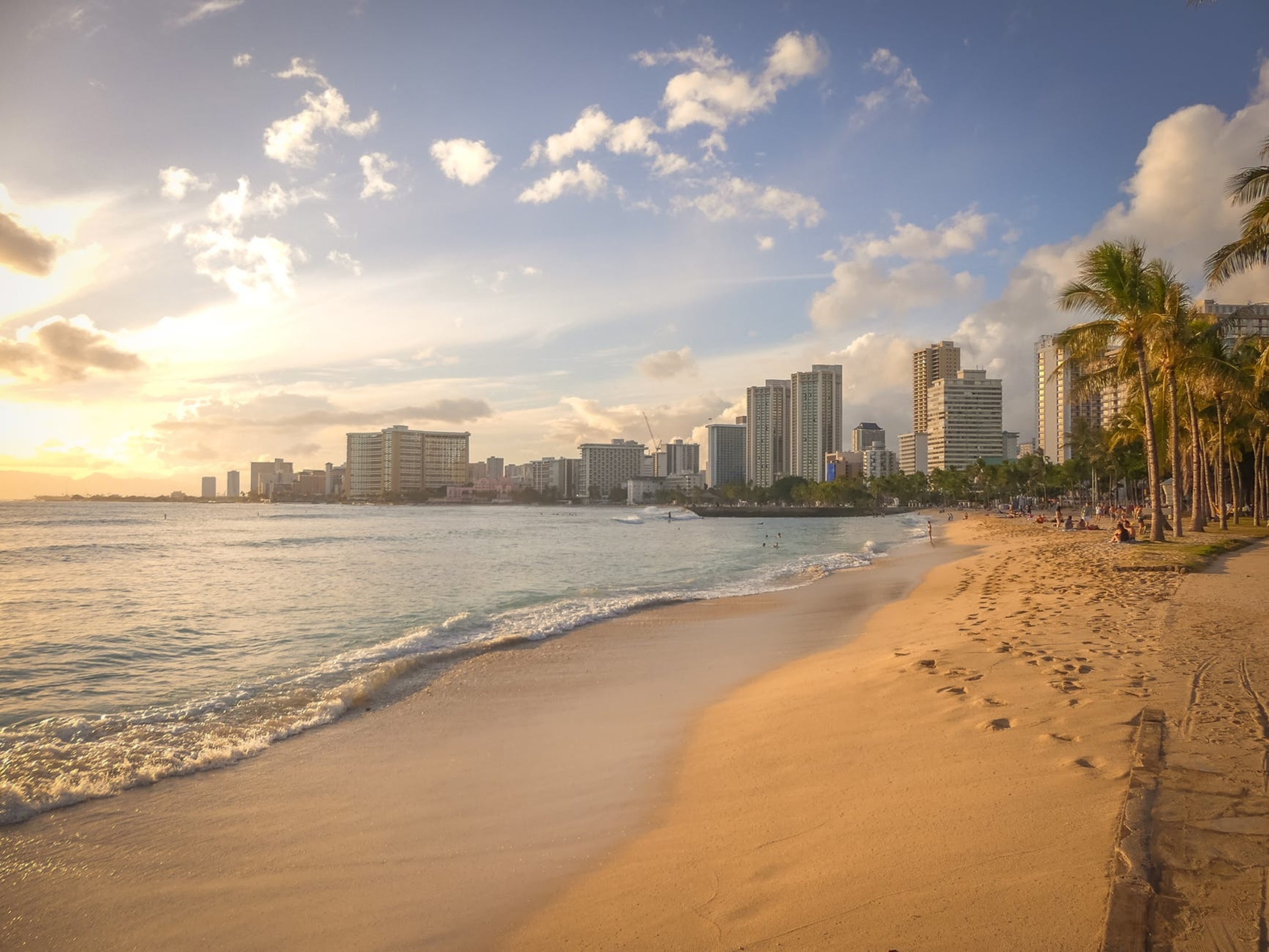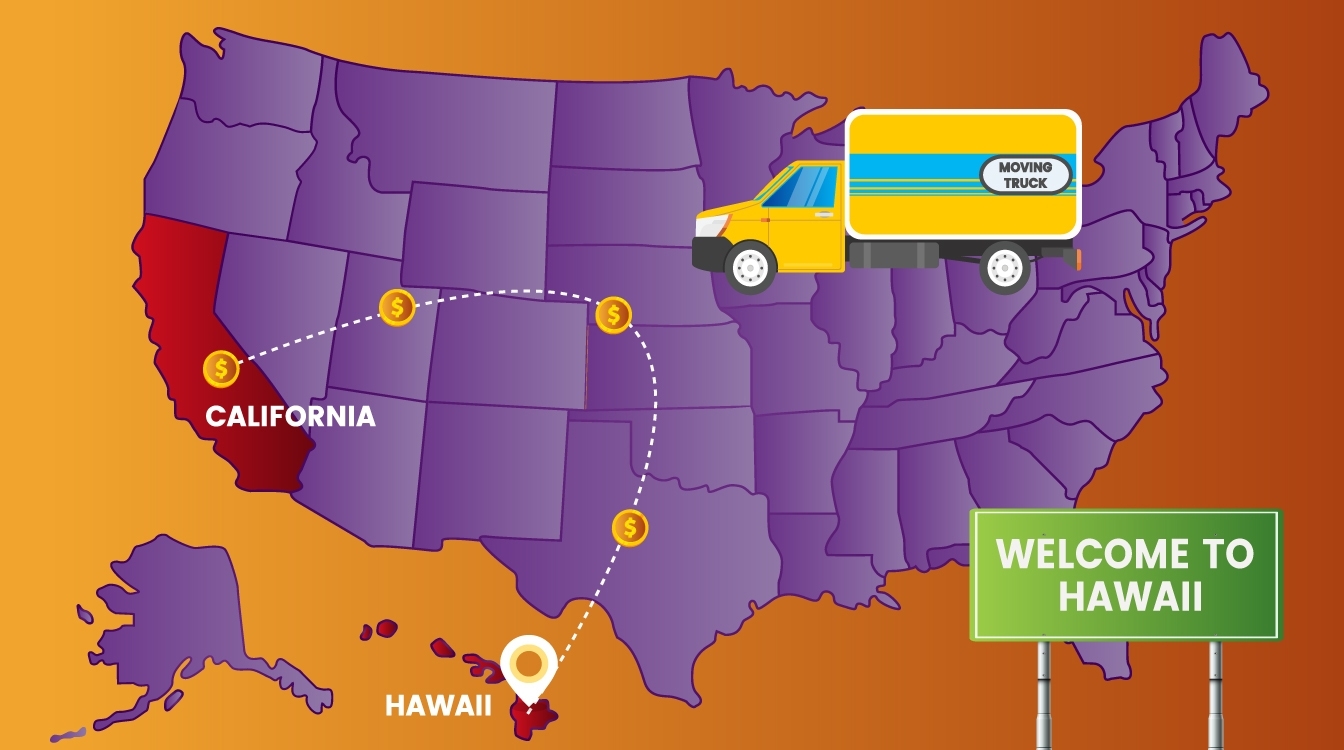Comprehensive Guide: Understanding The Cost To Move To Hawaii
Moving to Hawaii has long been a dream for many people, but understanding the cost to move to Hawaii is crucial before making such a significant decision. The islands of Hawaii offer breathtaking landscapes, a vibrant culture, and a unique lifestyle. However, relocating to this tropical paradise comes with financial considerations that need thorough evaluation. In this guide, we will break down the expenses involved in moving to Hawaii and provide valuable insights to help you plan your move effectively.
From transportation and housing costs to daily living expenses, moving to Hawaii requires careful budgeting. This article will cover everything you need to know about the cost to move to Hawaii, ensuring you are well-prepared for your new adventure. Whether you're moving for work, retirement, or a lifestyle change, understanding these costs is essential for a smooth transition.
Throughout this guide, we will explore various factors that contribute to the cost of moving to Hawaii. By the end of this article, you will have a clearer picture of what to expect financially and how to manage your budget efficiently. Let's dive into the details and uncover the realities of relocating to this beautiful archipelago.
Read also:Port Mayaca Polo Your Ultimate Guide To The Hidden Gem Of Luxury Water Sports
Table of Contents
- Introduction to Moving Costs
- Transportation Costs
- Housing Costs in Hawaii
- Daily Living Expenses
- Logistics and Shipping Costs
- Employment Opportunities and Income
- Healthcare Costs
- Taxes in Hawaii
- Tips for Managing Relocation Costs
- Conclusion
Introduction to Moving Costs
Moving to Hawaii is an exciting journey, but it comes with specific financial implications. The cost to move to Hawaii involves several key components, including transportation, housing, and daily living expenses. Understanding these costs upfront can help you prepare for a seamless transition.
One of the primary considerations is the initial relocation cost. This includes the expense of shipping your belongings, travel costs for you and your family, and temporary accommodation upon arrival. Additionally, you will need to factor in the cost of finding a permanent home and setting up your new life in Hawaii.
Another important aspect is the ongoing cost of living in Hawaii. While the islands offer a picturesque lifestyle, they also come with a higher cost of living compared to many mainland states. By understanding these costs, you can better plan your budget and make informed decisions about your move.
Transportation Costs
Flight Expenses
One of the most significant expenses when moving to Hawaii is airfare. Depending on your departure location, the cost of flights can vary significantly. For example, flights from the West Coast of the United States tend to be more affordable than those from the East Coast.
- Average round-trip ticket from Los Angeles: $500-$700
- Average round-trip ticket from New York: $800-$1,200
It's important to book your flights well in advance to secure the best prices. Additionally, consider flying during off-peak seasons to save on costs.
Shipping Your Vehicle
If you plan to bring your vehicle to Hawaii, you will need to factor in the cost of shipping it. The price of shipping a car to Hawaii can range from $1,500 to $3,000, depending on the size of the vehicle and the departure port.
Read also:Xclusive Auto Nyc Your Ultimate Guide To Luxury Wheels In The Big Apple
Alternatively, you may choose to sell your current vehicle and purchase a new one in Hawaii. This option can be more cost-effective, especially if you are moving long-term.
Housing Costs in Hawaii
One of the most substantial expenses when moving to Hawaii is housing. The cost of living in Hawaii is significantly higher than the national average, with housing being one of the main contributors.
Renting vs. Buying
Deciding whether to rent or buy a home in Hawaii depends on your financial situation and long-term plans. Renting can be a more flexible option, especially if you are unsure about how long you will stay in the islands. However, buying a home can be a wise investment if you plan to settle permanently.
- Average rent for a one-bedroom apartment in Honolulu: $2,000-$2,500 per month
- Average home price in Hawaii: $800,000-$1,000,000
It's essential to research different neighborhoods and islands to find the best housing options that fit your budget and lifestyle.
Daily Living Expenses
Beyond housing, daily living expenses in Hawaii can also be higher than in other parts of the United States. Food, utilities, and entertainment costs all contribute to the overall cost of living.
Grocery Costs
Since most goods in Hawaii are imported, grocery prices tend to be higher. Expect to pay more for fresh produce, dairy products, and other essentials.
- Average grocery bill for a family of four: $1,000-$1,200 per month
Utilities
Utility costs in Hawaii can also be higher due to the reliance on imported energy sources. Electricity, water, and internet bills should be factored into your monthly budget.
- Average monthly utility bill: $200-$300
Logistics and Shipping Costs
Moving your belongings to Hawaii requires careful planning and budgeting. Shipping costs can vary depending on the size of your shipment and the distance from your current location.
Household Goods
Shipping household goods to Hawaii can be expensive, with costs ranging from $3,000 to $8,000 for a full container. It's important to declutter and only ship essential items to minimize expenses.
Furniture and Appliances
If you plan to purchase new furniture and appliances in Hawaii, consider the cost of these items in your budget. While buying locally can save on shipping costs, prices may still be higher due to import fees.
Employment Opportunities and Income
Understanding the job market in Hawaii is crucial when planning your move. While the islands offer a variety of employment opportunities, salaries may not always match the high cost of living.
Key Industries
Hawaii's economy is driven by tourism, healthcare, education, and government jobs. These industries provide the majority of employment opportunities in the state.
- Tourism: 20% of jobs
- Healthcare: 15% of jobs
- Education: 10% of jobs
Researching job prospects in your field and understanding the average salaries can help you determine if moving to Hawaii is financially viable.
Healthcare Costs
Access to affordable healthcare is an important consideration when moving to Hawaii. The state offers a range of healthcare options, but costs can vary depending on your insurance coverage and provider.
Insurance
Obtaining health insurance is essential when moving to Hawaii. Whether through your employer or purchasing a plan on the open market, ensure you have adequate coverage to meet your medical needs.
Medical Services
Hospitals and clinics in Hawaii provide high-quality care, but costs can be higher due to the remote location of the islands. Be sure to factor in potential medical expenses when budgeting for your move.
Taxes in Hawaii
Taxes in Hawaii are another important factor to consider when evaluating the cost to move to Hawaii. The state has its own tax structure, which includes income tax, general excise tax, and property tax.
Income Tax
Hawaii's income tax rates are progressive, meaning higher earners pay a larger percentage of their income in taxes. Understanding these rates can help you plan your finances accordingly.
Excise Tax
The general excise tax in Hawaii applies to most goods and services, adding an additional cost to your daily purchases. Be aware of this tax when budgeting for your move.
Tips for Managing Relocation Costs
Moving to Hawaii can be a costly endeavor, but there are ways to manage these expenses effectively. Here are some tips to help you save money and make the most of your relocation:
- Book flights and shipping services in advance to secure better rates.
- Declutter and only ship essential items to reduce shipping costs.
- Research housing options thoroughly to find affordable neighborhoods.
- Create a detailed budget to track your expenses and stay on track financially.
By following these tips, you can ensure a smoother transition and better financial stability upon arriving in Hawaii.
Conclusion
Moving to Hawaii is a dream for many, but understanding the cost to move to Hawaii is essential for a successful relocation. From transportation and housing costs to daily living expenses, each factor plays a crucial role in your overall budget. By thoroughly researching and planning, you can make informed decisions that will lead to a more enjoyable and financially secure life in the islands.
We encourage you to share your thoughts and experiences in the comments section below. If you found this guide helpful, please consider sharing it with others who may be considering a move to Hawaii. Additionally, explore our other articles for more valuable insights on living and working in Hawaii. Your journey to paradise starts here!


